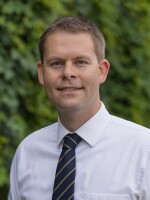Later this month, St. Louis officials will begin the process of combining the city’s police, fire and EMS emergency operations into one call center. The plan seeks to address a shortage of dispatchers in the city and long hold times for people calling 911.
St. Louis Mayor Tishuara Jones announced the plan in August. On Wednesday’s St. Louis on the Air, interim Public Safety Director Dan Isom signaled a full merger of the three communications centers could take more time.
“When the mayor went to the 911 system and the police department, we talked about October being the target date. And while we want to do it as quickly as possible, because this is an urgent need for our community, we want to make sure we do it right,” Isom told host Sarah Fenske. “We're hoping that in the next 30 to 60 days, we'll have some significant movement in that direction.”
The first step is to merge dispatcher classifications within the city’s Personnel Department — a move that will give some EMS dispatchers a raise. Police dispatchers historically have been paid more; Isom said all dispatchers should be paid the same.
Subsequent steps involve moving EMS and fire dispatch operations to the police department’s downtown headquarters and then getting the entire system onto the same technology.
Police dispatch has historically been separate from fire and EMS. The State of Missouri controlled the police department from the Civil War until the city gained local control in 2013.
According to data from the St. Louis Police Department that was compiled by the St. Louis Post-Dispatch, the department aims to answer at least 90% of 911 calls within 10 seconds, but its “grade of service” for that mark has declined in recent years. It fell to just 64% in 2020, down from 80% in 2018. That’s despite a concerted effort by former Mayor Lyda Krewson to address the problem in 2020.
At an aldermanic committee meeting last week, some aldermen as well as police and fire union representatives complained they didn’t have enough information.
“Any time there's change — whether it's unions or employees — there's a sense of fear,” Isom said. “People think about how this is going to affect me personally and also my job. And so we've tried to talk to employees about what we're trying to do and the purpose of what we're trying to do. … But I think all employees understand that we need to make some changes, and some aspect of consolidation and information sharing is important.”
Isom dismissed complaints that a relatively new program called Cops and Clinicians is making dispatchers’ jobs harder. That program diverts some 911 calls to crisis counselors and mental health specialists.
“If we can determine if a medical professional needs to go to a mental health call, as opposed to a police officer, in the end, that's a lot better,” he said. “We might have to do more work on the front end, but on the back end it’s going to be a much better response with the right professional going to the right call.”
Isom said the merger could allow for greater expansion of Cops and Clinicians in the coming years. "We are actively really looking and digging into all the calls for service to determine what professional needs to be sent to the right call. I firmly believe that officers should deal with crime problems, not mental health, not social issues,” he said. “Those are things that social workers and other medical professionals really should be responding to."
Related Event
What: St. Louis Public Safety Community Listening Session
When: 10 a.m. to noon Saturday
Where: Zoom; guests are asked to pre-register
“St. Louis on the Air” brings you the stories of St. Louis and the people who live, work and create in our region. The show is hosted by Sarah Fenske and produced by Alex Heuer, Emily Woodbury, Evie Hemphill and Lara Hamdan. Jane Mather-Glass is our production assistant. The audio engineer is Aaron Doerr.





